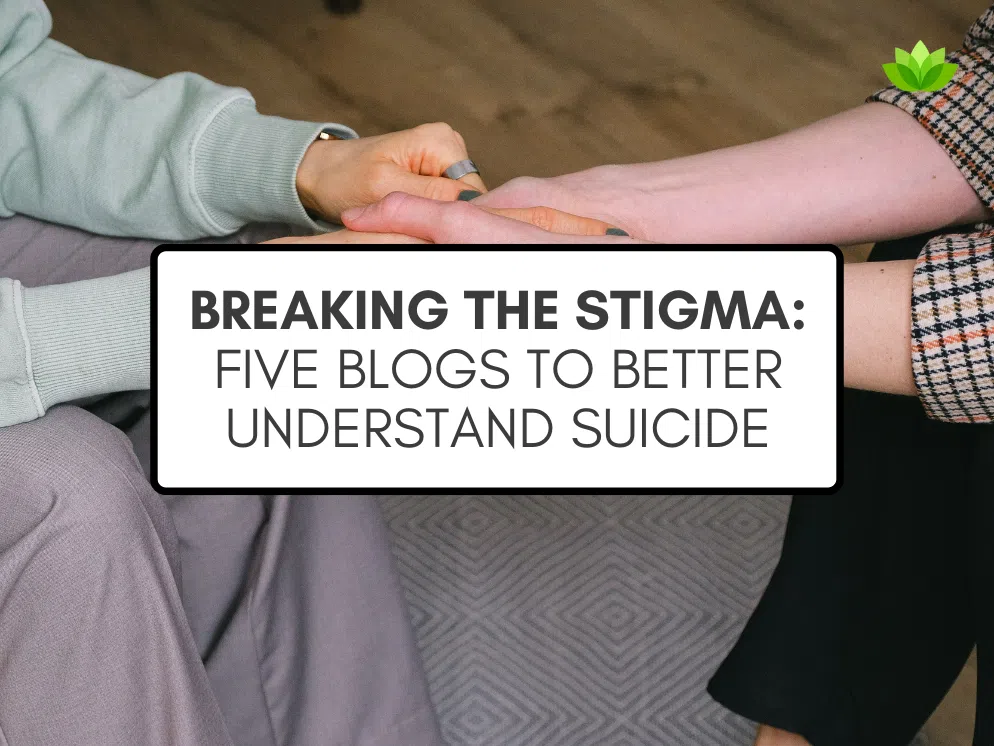- Unpacking Grief and Disability - July 8, 2024
- Breaking the Stigma: 5 Blogs to Better Understand Suicide - May 21, 2024
- 4 Tips for Better Sleep Hygiene - March 4, 2024
Grieving is complicated. It can be very hard to know how to help someone through their grief.
In many ways, there’s not really anything you can do to help reduce the grief they’re feeling. All you can really do is make it clear you’re there to support them as they carry the weight of that grief around, and go through their own grieving process.
But no matter how well meaning, sometimes the things we say in an attempt to comfort someone, just make them feel worse. It’s never anyone’s intention to make a grieving person feel worse, of course, but sometimes we don’t realize the underlying implication of our words, or how they could be hurtful to others. And if we ourselves haven’t experienced the loss our loved one is going through, it can be hard to know the right thing to say.
 To help you figure out what to say to your grieving loved one, we put together this list of phrases to avoid, and examples of comforting things to say.
To help you figure out what to say to your grieving loved one, we put together this list of phrases to avoid, and examples of comforting things to say.
What not to say to a grieving loved one:
Don’t cry/Don’t feel bad.
There’s actually nothing wrong with crying. And, if someone is grieving, of course they’ll feel bad for a while! It’s much healthier to express what you’re feeling when you’re feeling it, instead of trying to make yourself feel a more “positive” emotion. Let them feel however it is they feel, there’s no wrong emotional response to loss.
You just need to keep yourself busy!
Keeping busy might distract someone from the pain they are feeling temporarily, but it doesn’t help them long term. And as soon as they have a moment of rest, they’ll be hit with all of those feelings they’ve been pushing aside in favor of keeping busy–which can be much more overwhelming than just letting your feelings happen as they come.
Time heals all wounds.
Grief can get easier to carry as time goes on, but losing someone isn’t something that gets fully healed over. The grief itself doesn’t get smaller, the griever just gets stronger and learns a new normal. It’s also unhelpful because it can feel dismissive of what they’re feeling now; even if their grief does feel easier to carry in the future, does that mean the fact that they’re struggling now doesn’t matter?
I know how you feel.
Even if you’ve lost someone, you don’t know precisely what this person is feeling. Everyone experiences grief differently, and saying this sort of thing just makes it seem like you’re the expert on their emotions instead of them.
They’re no longer in pain.
It can be a relief to see someone’s long time suffering end, but that relief that their pain has finally ended doesn’t ease the pain of the loss of them. The loss they are experiencing is about the love between themselves and the person they lost, the relationship they no longer have. And any relief they may feel that their loved one is no longer in pain doesn’t make it any easier to be without them.
You’ll grow from this/Everything happens for a reason.
Sometimes we do learn from loss. But it’s not our job to make our grief a teachable moment. Telling someone that they’ll grow from this experience, or that it happened for a reason dismisses their pain, and implies that they should just try to see the glass as half full.

Below are 5 things you can say to someone who’s grieving instead: 
I can’t imagine the pain you must be feeling.
This is one of the best things you can say to someone who is grieving. It validates the fact that they are feeling pain, not shaming them or trying to get them to just put a smile on. And it’s true, you can’t imagine their pain–that is specific to them. This statement lets them know that you know they are struggling, that you’re compassionate, and that you won’t try to tell them how to feel. It also is open ended enough that if they want to, they can open up about how they’re feeling.
Do you want to talk about what happened?
Many people avoid grievers, unsure of how to behave around them. They aren’t sure if they should mention the loss or not. This means that people who are grieving are left with very little support. Give your grieving loved one a chance to talk about what happened and how they’re feeling. If no one has asked yet, they may just be bottling up their feelings, afraid of making others uncomfortable.
How can I be there for you while you’re grieving?
It’s okay if you don’t know what to say or do when met with grief. It’s difficult to navigate. But it’s important to let your loved one know that just because these are new waters for you, doesn’t mean you’ll leave them to deal with it on their own.
I’m so sorry to hear you’re going through this.
Just the words “I’m sorry” often isn’t the most helpful thing to say to someone grieving. Especially if you personally didn’t know the person they are grieving, it can ring a little insincere. Instead, let them know that their suffering is on your mind.
What’s on your plate that you can’t manage? Can I take care of it for you?
Often when someone is going through something difficult, a go-to phrase is “let me know if there’s anything I can do to help.” The sentiment behind that is nice, but it’s not the best way to offer support, because it puts the pressure on the person grieving to then reach out again and ask for help, which they might feel uncomfortable doing. Instead, let them know you want to help them manage chores or errands while they’re going through this. Offer to grab some groceries or pick up dinner or drive their children somewhere, etc. Grief takes a lot out of a person, and it can be hard to keep up with daily responsibilities. If you want to offer support in that area, offer some specific things you can do for them and ask which would be the most helpful.






No comments yet.